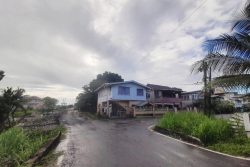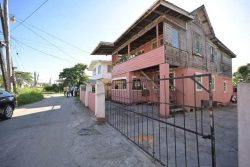Dear Editor,
Imagine my utter shock when Finance Minister Dr. Ashni Singh returned from his U.S. sojourn, still devoid of funding for Guyana’s ambitious gas-to-energy project. It’s almost as if wandering into EXIM Bank with no sovereign credit rating and expecting a warm handshake of billions was, well, wishful thinking.
You see, Guyana’s failure to slap a sovereign credit rating on itself, courtesy of Moody’s or S&P, is the one glaring roadblock that’s been standing between us and the financing of dreams. Who could have guessed? Surely, global lenders with pockets deeper than the Atlantic would have no qualms about tossing hundreds of millions at a country whose creditworthiness is an uncharted mystery. But here we are—hat in hand, still unable to turn natural gas into national glory.
Let’s be honest. If we’re serious about securing $660 million for this transformative energy project, a sovereign rating is not some trivial bureaucratic box to tick. It’s the international equivalent of showing up to a black-tie event wearing pants. Without it, EXIM Bank officials are bound to wonder whether our ask for financing comes with an IOU written on the back of an old napkin.
Just look at our neighbours. Trinidad and Tobago, that bastion of stable energy markets, waves around its Ba1 and BBB- ratings like a VIP pass to the global finance club. Suriname, with its plucky Caa3 and CCC+ ratings, is gamely clawing its way up the ladder. And Vene-zuela—well, at least they’re rated, even if it’s the equivalent of a D-minus on their economic report card. Credit ratings may not be perfect, but they’re better than a wink and a handshake.
So, what’s stopping us? True, getting a rating will cost somewhere between $250,000 and $500,000 per agency per year. But hey, when you’re trying to secure $660 million, what’s a few hundred grand? At least this way, lenders might actually look at our proposal instead of filing it under “nice try.”
With a sovereign credit rating in hand, Guyana could confidently join the club of fiscally responsible nations, gaining access to international financing without awkward pauses or polite declines. Investors would no longer have to guess whether our books are balanced with care or with creative accounting. It’s a win-win—except, of course, for those who enjoy the current optics of chasing international loans with no credit score to show.
But let’s not dwell too much on that. By acquiring a rating, we wouldn’t just make our gas-to-energy project more bankable; we’d also pave the way for future development in healthcare, education, transportation—you know, the basic stuff that’s currently funded through the ol’ National Resource Fund prayer and hope method.
So here’s a thought: perhaps next time, instead of hoping for handouts, we could take the extra step, get rated, and walk into those international finance meetings looking less like beggars and more like the bold, emerging oil power we claim to be.
Sincerely,
Keith Bernard





